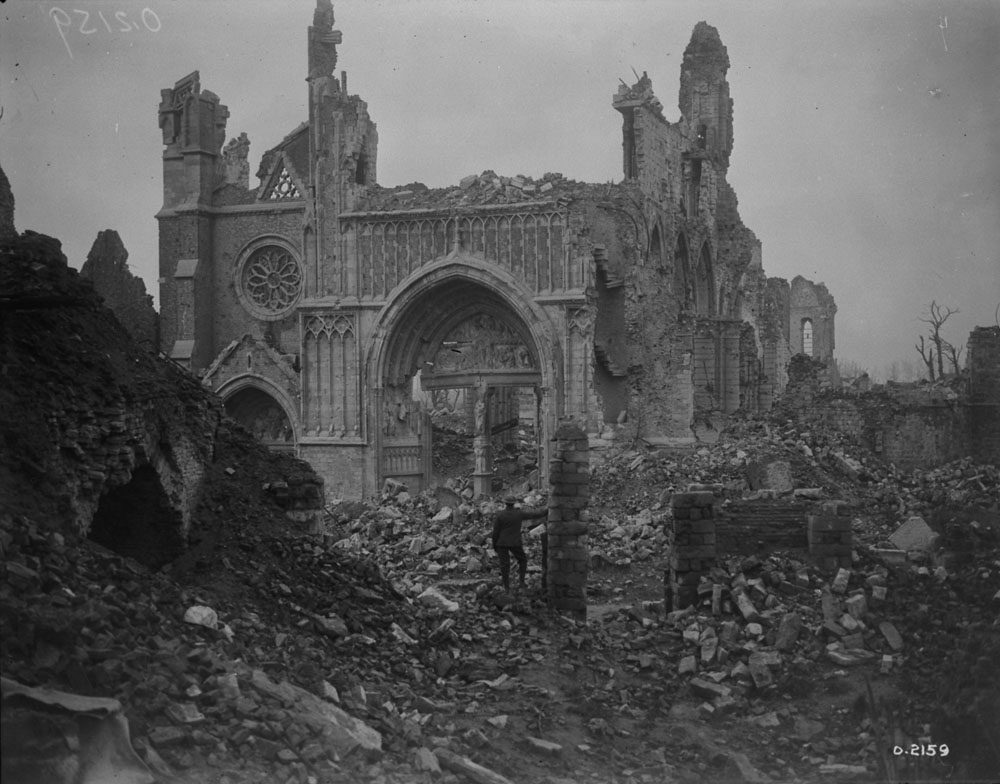Reviewed by Matthew Haultain-Gall.
Ypres. For well over one hundred years now, the name of this Belgian town has become shorthand for the death and destruction wrought by the First World War. But why? For whom? And which Ypres? After all, hundreds of thousands of combatants from dozens of nations fought several major battles in the ‘immortal salient’, each of which generated their own distinctive narratives. These questions are at the heart of Mark Connelly and Stefan Goebel’s fantastic Ypres, which painstakingly strips back the layers of this dense, multifaceted lieu de mémoirefrom the turn of the twentieth century to the First World War centenary.
Across six chapters, Connelly and Goebel skilfully trace Ypres’ evolution from a melancholic—even ‘dead’—town that was beginning to attract increasing numbers of tourists before the war, to a battered ruin often at the centre of the maelstrom between 1914 and 1918, and finally to a site of intense transnational commemoration once the guns fell silent. Aiming to provide readers with ‘the first truly transnational interpretation of the meaning of Ypres’ (p. xi), the authors do not restrict their analysis to the eponymous Flemish town. Rather, they defer to how each belligerent country imagined its own ‘microgeography’ (p. 21) of the salient. Unsurprisingly, much of the focus is on the British, who were not only the fastest and most proactive when it came to stamping their memorial footprint into the region after the war, but have maintained close links with the city for much of the last century. The Germans’ interwar fascination with Langemarck—which was not just a Nazi phenomenon—is also finely parsed. Additionally, it is refreshing to see Connelly and Goebel touch on somewhat lesser-known Belgian and French interest in Dixmude as well as reflecting on the increasingly important role that local agents have played in shaping war commemoration in West Flanders in recent years.
The end result is a deeply researched, absorbing and thoroughly readable book. To date, there is no other English language publication that examines Ypres as a site of memory in such detail, which is amazing considering the convergence of commemorative activity around this town over the last one hundred years. The transnational aspect of the analysis is especially eye-opening for readers who may be more familiar with British, rather than German, approaches to First World War commemoration, or vice versa. Admittedly, at only two hundred pages, Ypres is a rather lean publication for the amount of material it covers and, as a consequence, certain elements can feel a little rushed at times, but this is a minor quibble. On the whole, Ypres is a model study of how to unlock a complex and contested site of memory. It is essential reading for those working in the field of First World War memory, but it should also appeal anyone who has seen ‘Ypres’ etched into a memorial or walked down a Langemarck Straße or Rue de Dixmude and wondered how these Belgian places found their way into public spaces abroad.
Matthew Haultain-Gall is a scientific collaborator at the Université catholique de Louvain (UCLouvain), Belgium. His research focusses on the cultural and social impacts of the First World War. He has recently completed a PhD at the University of New South Wales (Sydney) in which he traces the memory of the First Australian Imperial Force’s battles in Belgium. He is the recipient of several grants and awards, including the Ken Inglis Prize for a presentation on Charles Bean’s war correspondence and his subsequent Official History chapters describing the third battle of Ypres. Image Credit: CC by BiblioArchives / LibraryArchives/Flickr.

